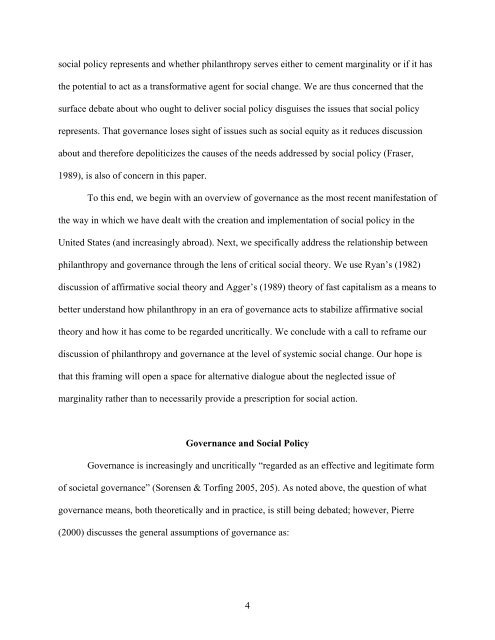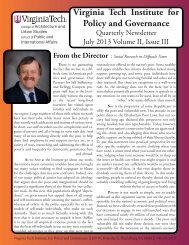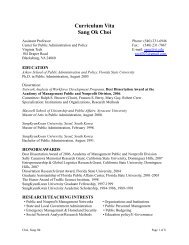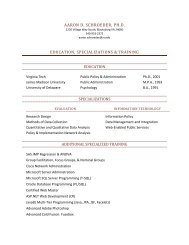1 Towards a Critical Social Theory of Philanthropy in an Era of ...
1 Towards a Critical Social Theory of Philanthropy in an Era of ...
1 Towards a Critical Social Theory of Philanthropy in an Era of ...
You also want an ePaper? Increase the reach of your titles
YUMPU automatically turns print PDFs into web optimized ePapers that Google loves.
social policy represents <strong>an</strong>d whether phil<strong>an</strong>thropy serves either to cement marg<strong>in</strong>ality or if it has<br />
the potential to act as a tr<strong>an</strong>sformative agent for social ch<strong>an</strong>ge. We are thus concerned that the<br />
surface debate about who ought to deliver social policy disguises the issues that social policy<br />
represents. That govern<strong>an</strong>ce loses sight <strong>of</strong> issues such as social equity as it reduces discussion<br />
about <strong>an</strong>d therefore depoliticizes the causes <strong>of</strong> the needs addressed by social policy (Fraser,<br />
1989), is also <strong>of</strong> concern <strong>in</strong> this paper.<br />
To this end, we beg<strong>in</strong> with <strong>an</strong> overview <strong>of</strong> govern<strong>an</strong>ce as the most recent m<strong>an</strong>ifestation <strong>of</strong><br />
the way <strong>in</strong> which we have dealt with the creation <strong>an</strong>d implementation <strong>of</strong> social policy <strong>in</strong> the<br />
United States (<strong>an</strong>d <strong>in</strong>creas<strong>in</strong>gly abroad). Next, we specifically address the relationship between<br />
phil<strong>an</strong>thropy <strong>an</strong>d govern<strong>an</strong>ce through the lens <strong>of</strong> critical social theory. We use Ry<strong>an</strong>’s (1982)<br />
discussion <strong>of</strong> affirmative social theory <strong>an</strong>d Agger’s (1989) theory <strong>of</strong> fast capitalism as a me<strong>an</strong>s to<br />
better underst<strong>an</strong>d how phil<strong>an</strong>thropy <strong>in</strong> <strong>an</strong> era <strong>of</strong> govern<strong>an</strong>ce acts to stabilize affirmative social<br />
theory <strong>an</strong>d how it has come to be regarded uncritically. We conclude with a call to reframe our<br />
discussion <strong>of</strong> phil<strong>an</strong>thropy <strong>an</strong>d govern<strong>an</strong>ce at the level <strong>of</strong> systemic social ch<strong>an</strong>ge. Our hope is<br />
that this fram<strong>in</strong>g will open a space for alternative dialogue about the neglected issue <strong>of</strong><br />
marg<strong>in</strong>ality rather th<strong>an</strong> to necessarily provide a prescription for social action.<br />
Govern<strong>an</strong>ce <strong>an</strong>d <strong>Social</strong> Policy<br />
Govern<strong>an</strong>ce is <strong>in</strong>creas<strong>in</strong>gly <strong>an</strong>d uncritically “regarded as <strong>an</strong> effective <strong>an</strong>d legitimate form<br />
<strong>of</strong> societal govern<strong>an</strong>ce” (Sorensen & Torf<strong>in</strong>g 2005, 205). As noted above, the question <strong>of</strong> what<br />
govern<strong>an</strong>ce me<strong>an</strong>s, both theoretically <strong>an</strong>d <strong>in</strong> practice, is still be<strong>in</strong>g debated; however, Pierre<br />
(2000) discusses the general assumptions <strong>of</strong> govern<strong>an</strong>ce as:<br />
4






